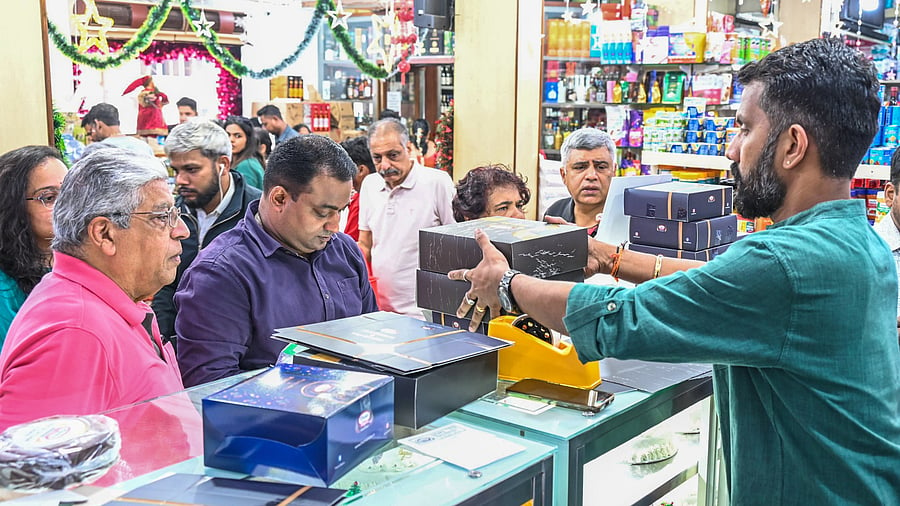
Consumers must ask for a bill or invoice at the time of payment.
DH Photo / S K Dinesh
A customer of a popular liquor store, Tonique, won a case against the latter after taking them to consumer court. He took issue with being charged Rs 14.29 for a carry bag bearing the store’s branding. The customer received compensation of Rs 5,000, and the Court also directed the chain store to pay Rs 1 lakh as compensation for unfair trade practices to the Consumer Welfare Fund.
Customer rights awareness is a hot topic on social media platforms among Bengalureans. Metrolife spoke to city-based experts for a checklist.
Knowing MRP
Lawyer K M Sai Apabharana says that under section 2(9)(ii) of the Consumer Protection Act, “consumers have the right to be informed of the maximum retail price (MRP) of a product” before purchasing it. “Any act, which can mislead a consumer in terms of the price, constitutes an unfair trade practice as defined under section 2(47) of the Act,” she explains.
Checking dates
Customers have the right to know the manufacturing and expiry dates of every product they purchase, as per section 2(9)(i) and (ii) of the Act. “This will ensure that the goods are safe for consumption or use. Incorrect or misleading information about these details also amounts to an unfair trade practice,” says Sai.
Refund or replacement
Consumer rights activist Y G Muralidharan says sometimes bills are printed with the words ‘Goods once sold cannot be taken back or exchanged’, “which is illegal”. All consumers are entitled to a refund or replacement if purchased goods have a manufacturing defect, says Sai. “However, wherever possible, consumers should verify the product’s functioning before leaving the store to avoid unnecessary disputes,” she adds.
Also, the cooling-off period (the period from the purchase of an item to the date before which it can be returned), should be clearly mentioned in the bill. “Conditions like not tampering with and not using the goods to be returned will apply,” Muralidharan adds.
Collect bill
Consumers must ask for a bill or invoice at the time of payment. “Even if the customer doesn’t ask for a bill, the seller must provide it to every customer. This will allow the consumer to return defective goods or claim a replacement for an expired or improperly packaged product,” says Muralidharan.
He adds customers don’t need to provide their mobile number to a retailer when making a purchase.
Advocate Indra Dhanush points out that when GST is levied on a purchase, the GSTIN (Goods and Services Tax Identification Number) of the seller, should be printed on the bill.
Packaging
Dhanush adds that most goods could have a primary (its actual packaging) and a secondary packaging (how it is transported). “A carry bag cannot be charged if it has a logo or branding on it. However, the shop can charge a price for the bag if it is plain,” he adds.